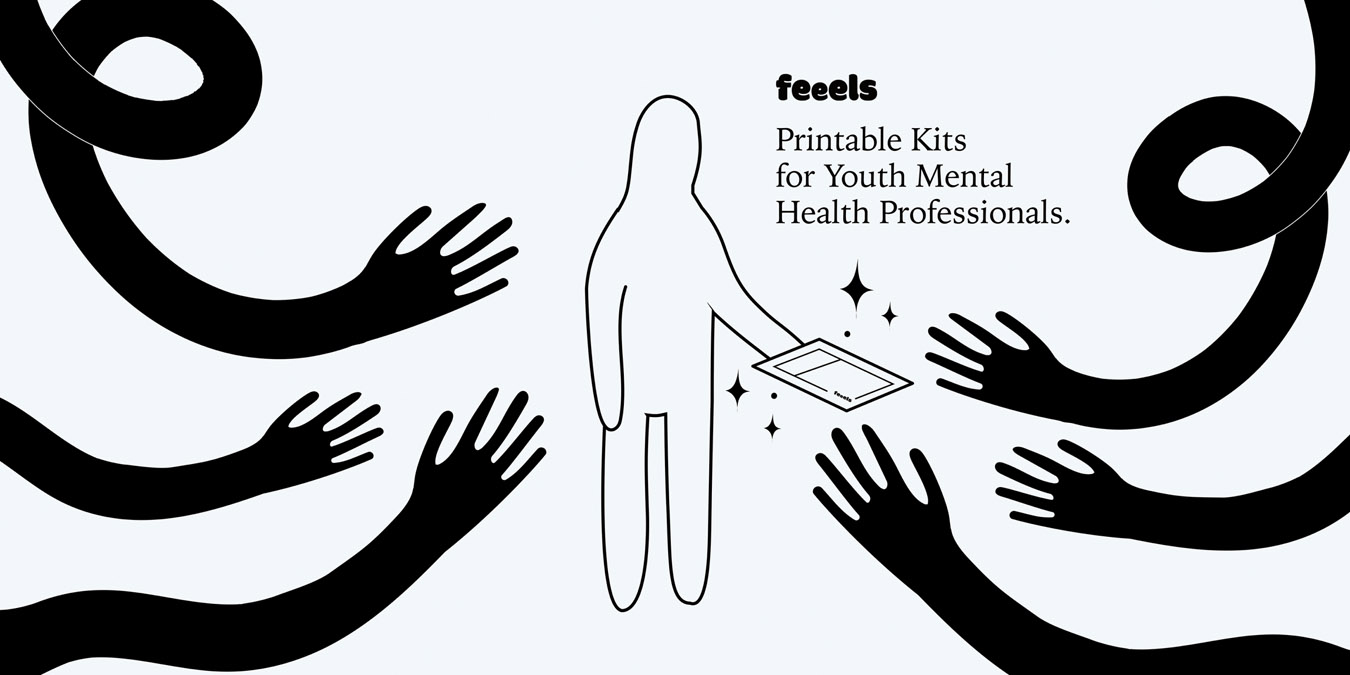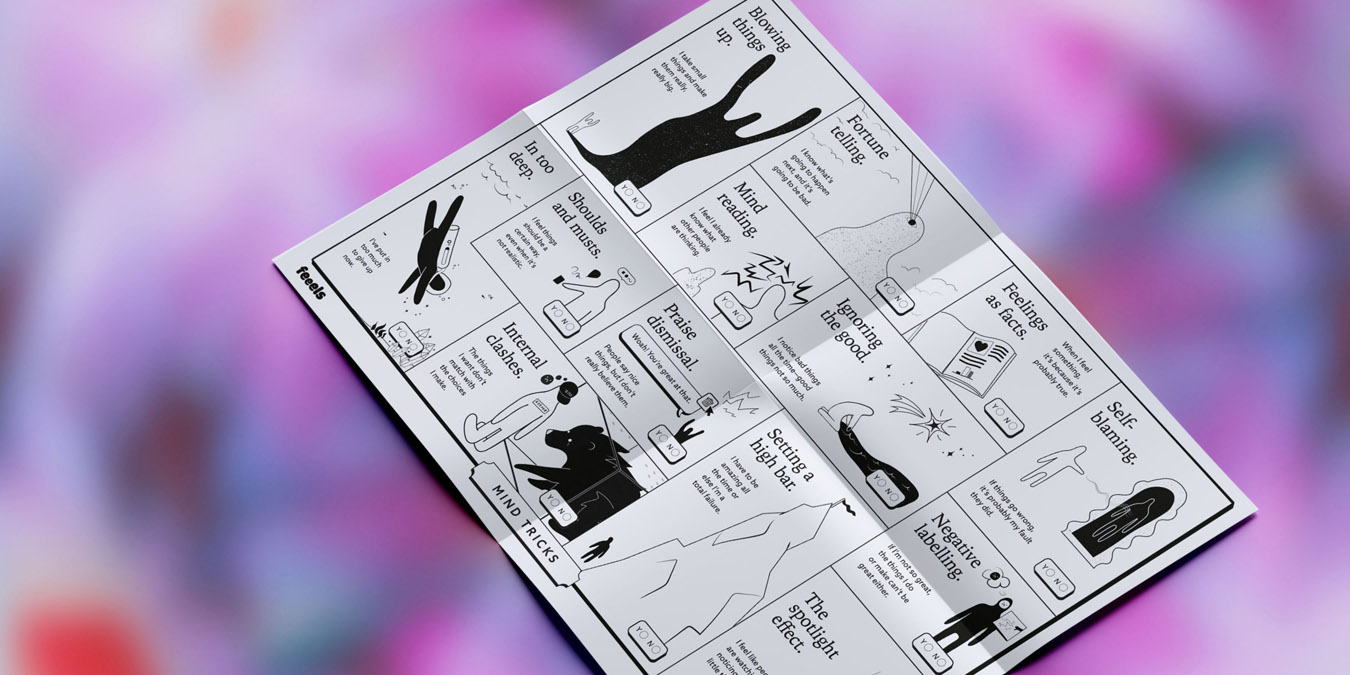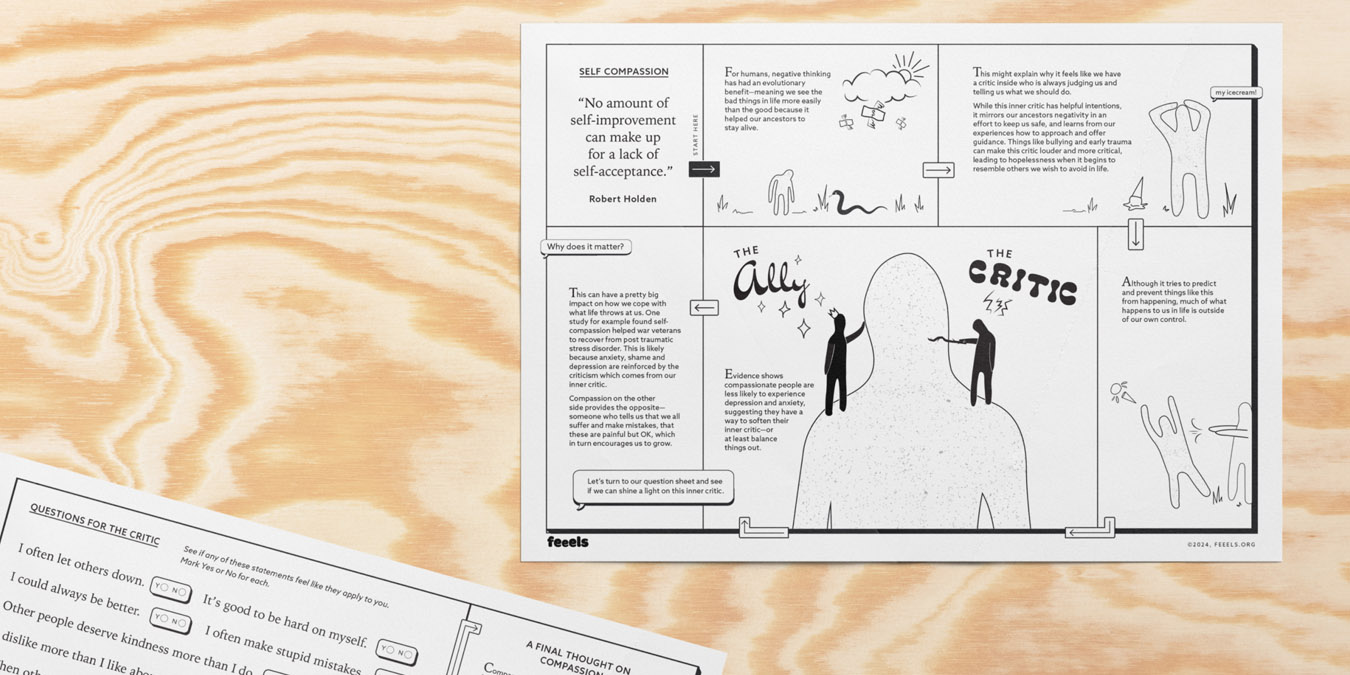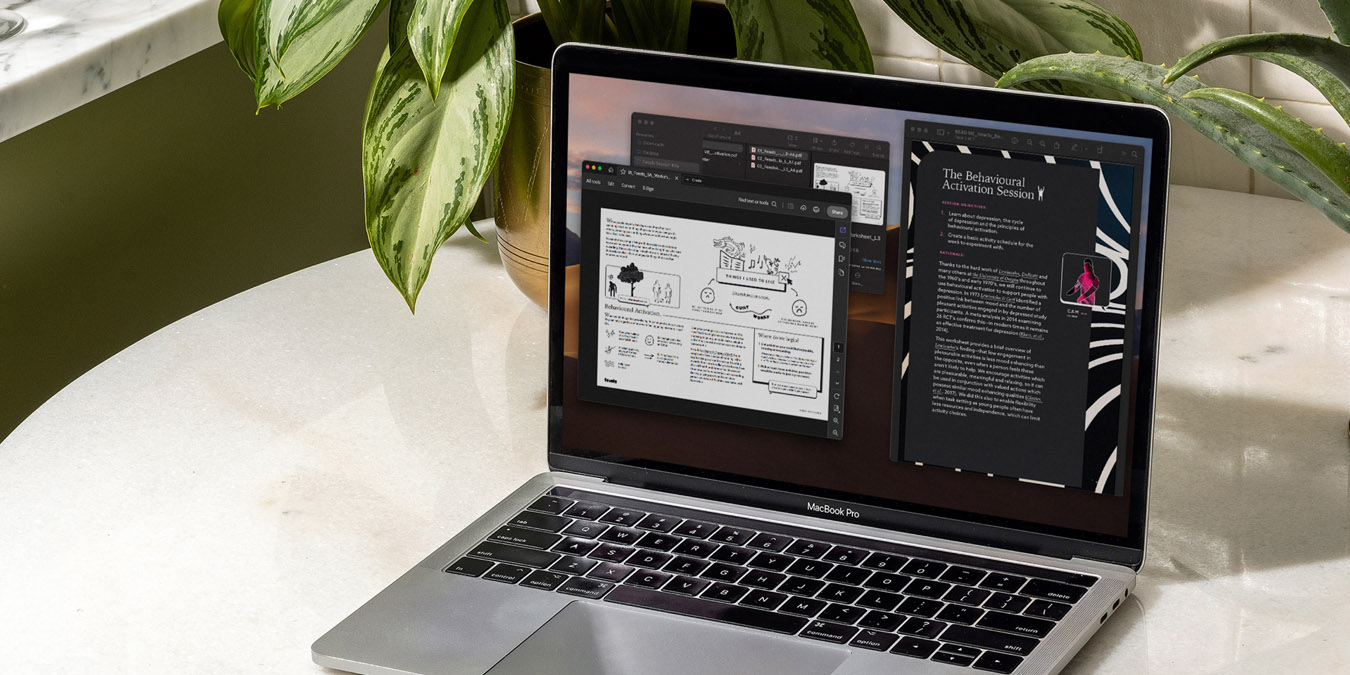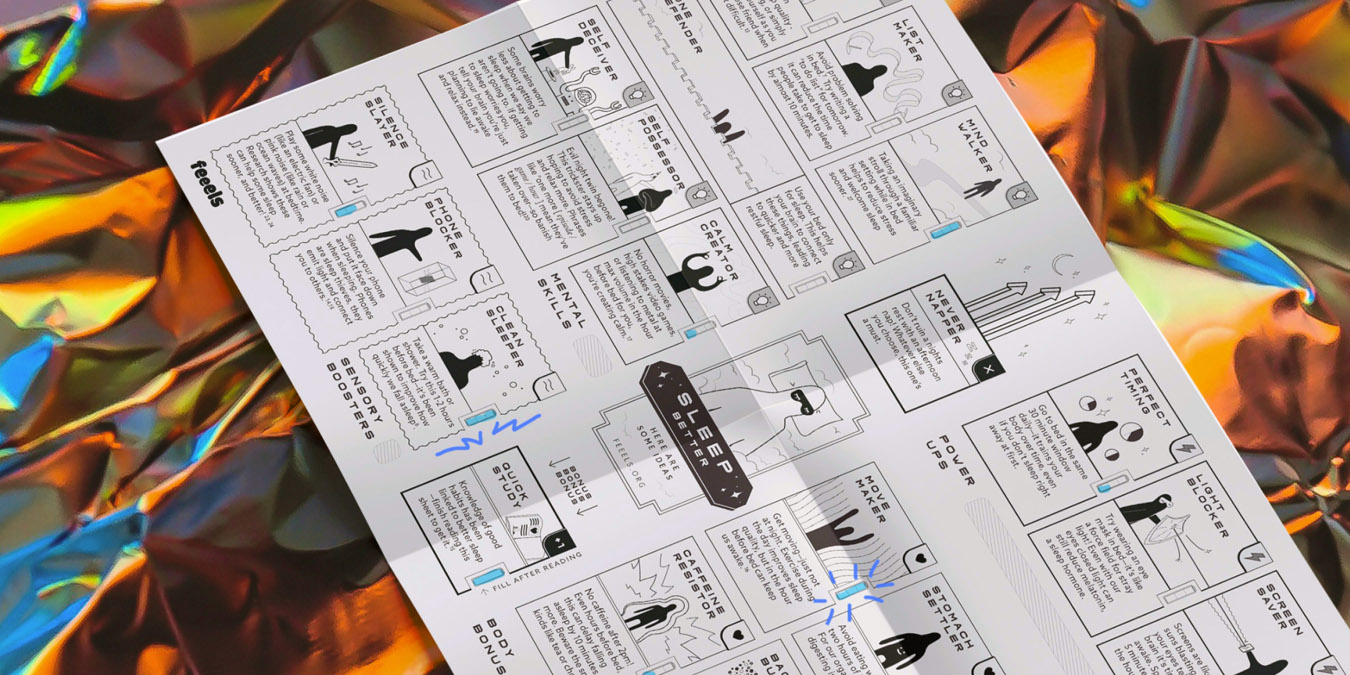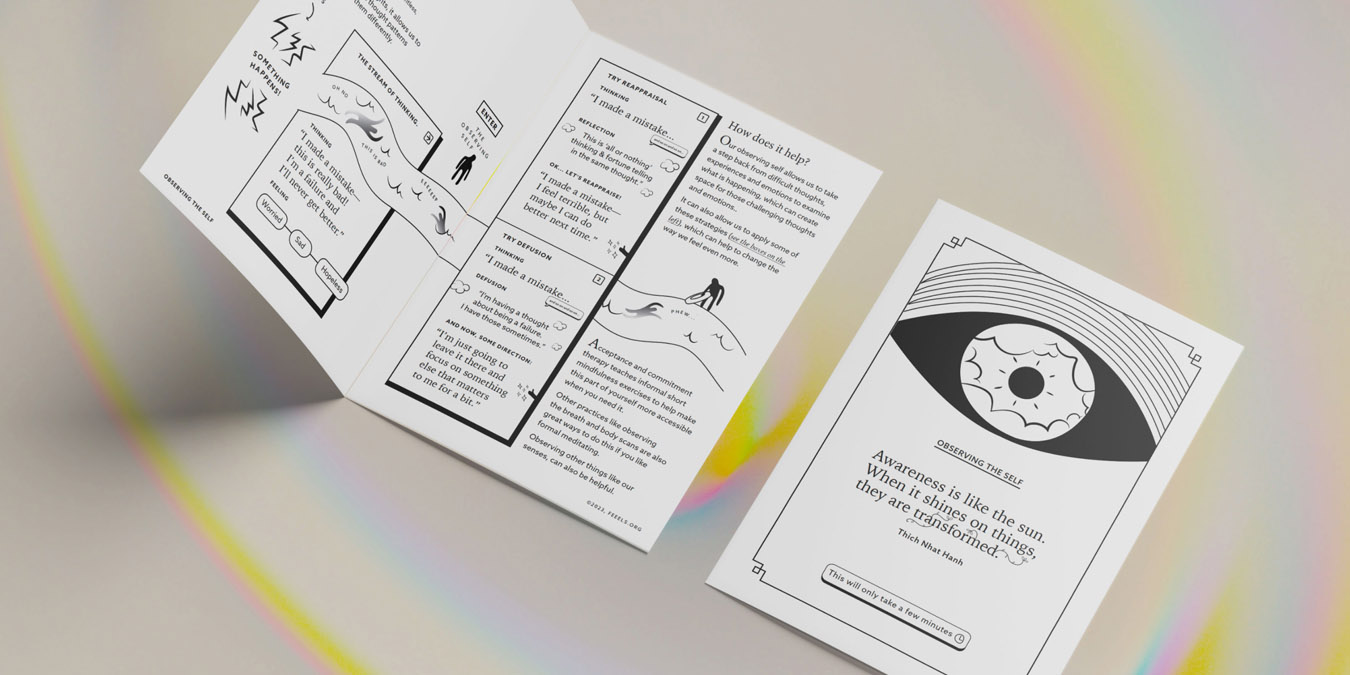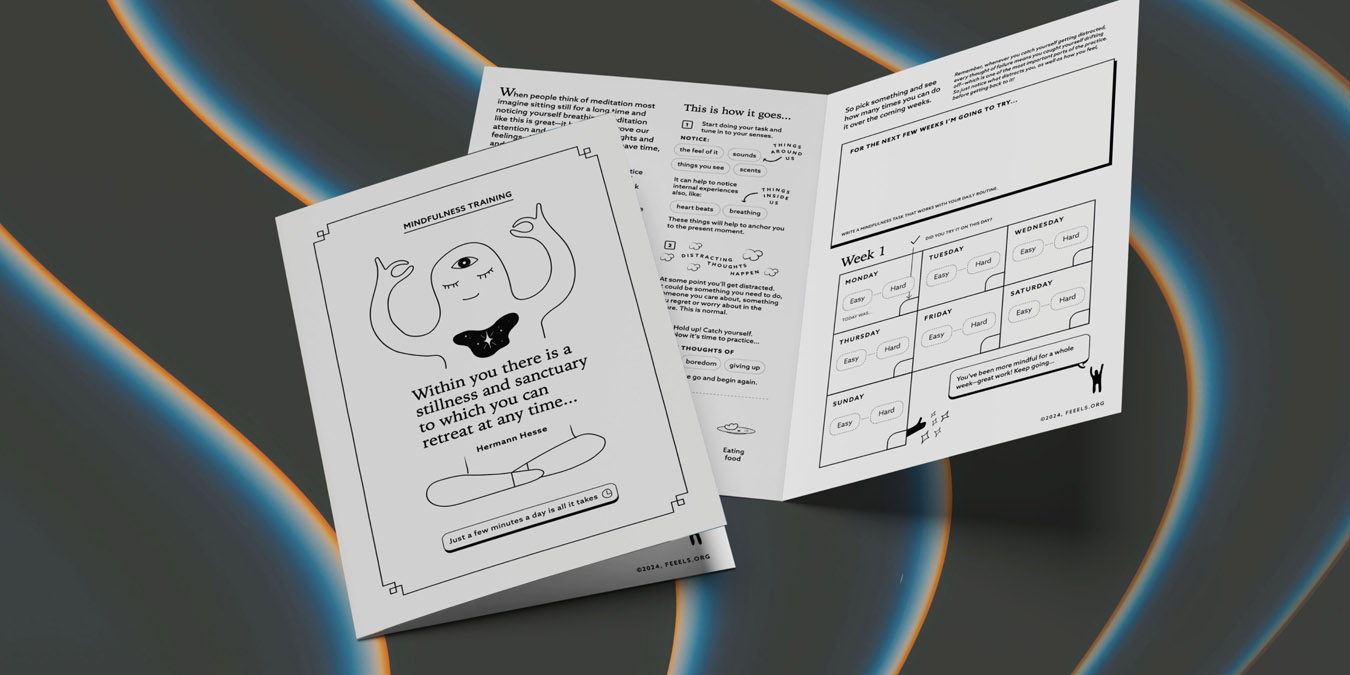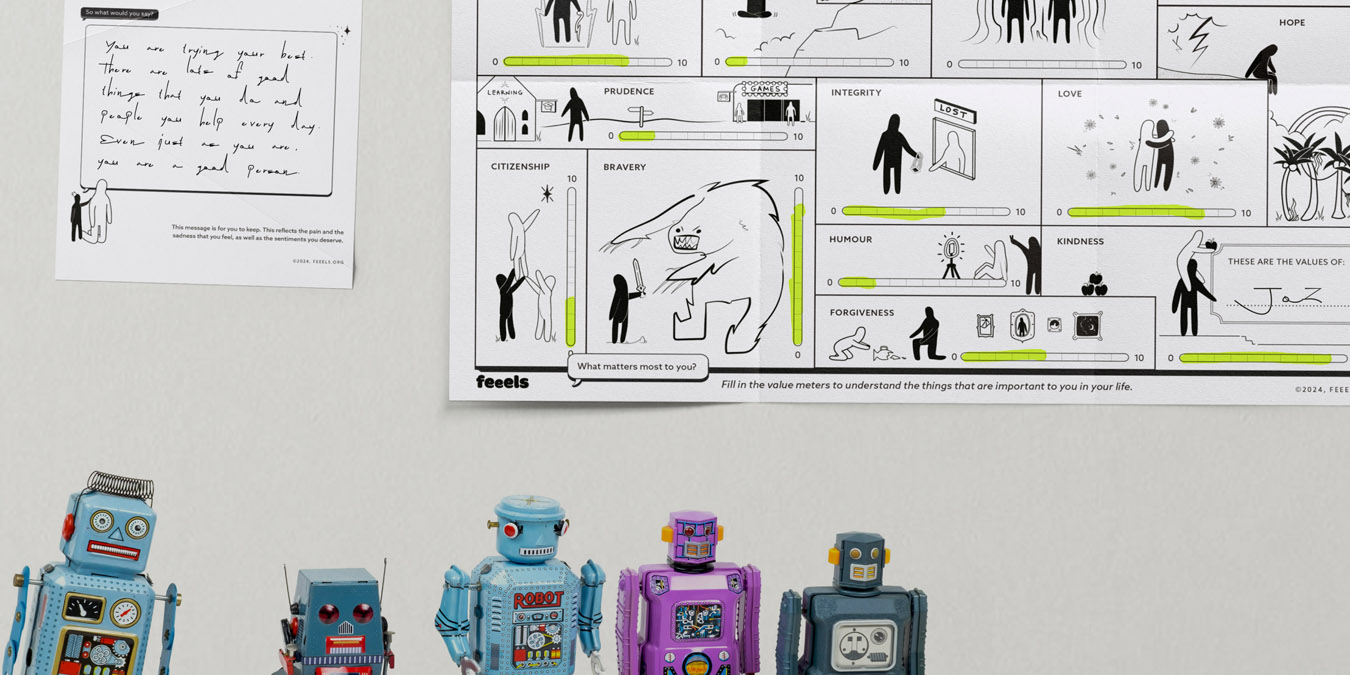Feeels session kits were created using exploratory design aiming to answer a clear need and validated by rapid prototyping and iterative field testing. Through close collaboration and UX methodolgies, they took form, with a new kind of professional toolkit for the provision of Youth Mental Health emerging. This hands-on consultation process is based here in Victoria, informing a set of ever-changing design needs that are explored in early-phase consultation with local practitioners.
By blending disciplines like psychology, neuroscience, and design thinking in the planning around each content theme, Feeels session kits aim to be visually engaging, emotionally motivating and grounded in evidence-based research (which is always cited for each kit). This unique combination of methodologies differentiates the offering from traditional therapeutic materials, helping to solve these complex communication challenges in ways that feel appropriate to a young, modern audience.
As a design piece, it grows from an industry landscape in Victoria with a strong appetite for inclusive, progressive and empathetic visual expression. All Feeels materials embrace this, featuring a signature monochrome world where characters express their experiences, feelings and unique quirks rather than perpetuating basic gender or cultural shorthands and broader stereotypes. The work’s tone and expression speaks to the lived experience of it’s creators, and aims to represent the experience of being human in an authentic way, alongside the theoretical principles it communicates.
The challenge of providing engaging psycho-education and support for youth mental health services is an ongoing mission that asks for a design framework and approach, not a single outcome. Feeels exists to imagine more effective solutions in this space, with inventive, empathetic, and user-centric design that is emblematic of the sophisticated communications landscape it emerged from, here in Victoria. It aims to keep doing that, both now, and in the future to come.

